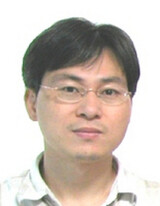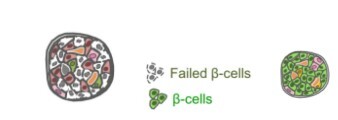Terapeutic potential and mechanism of cytopiloyne
Cytopiloyne was identified as a novel polyacetylenic compound. However, its anti-diabetic properties are poorly understood. The aim of the present study was to investigate the anti-diabetic effect and mode of action of cytopiloyne on type 2 diabetes (T2D). We first evaluated the therapeutic effect of cytopiloyne on T2D in db/db mice. We found that one dose of cytopiloyne reduced postprandial glucose levels while increasing blood insulin levels. Accordingly, long-term treatment with cytopiloyne reduced postprandial blood glucose levels, increased blood insulin, improved glucose tolerance, suppressed the level of glycosylated hemoglobin A1c (HbA1c) and protected pancreatic islets in db/db mice. Next, we studied the anti-diabetic mechanism of action of cytopiloyne. We showed that cytopiloyne failed to decrease blood glucose in streptozocin (STZ)-treated mice whose cells were already destroyed. Additionally, cytopiloyne dose-dependently increased insulin secretion and expression in cells. The increase of insulin secretion/expression of cytopiloyne was regulated by protein kinase C (PKC) and its activators, calcium and diacylglycerol (DAG). Overall, our data suggest that cytopiloyne treats T2D via regulation of insulin production involving the calcium/DAG/PKC cascade in cells. These data thus identify the molecular mechanism of action of cytopiloyne and prove its therapeutic potential in T2D. The invention of Bidens pilosa-based formulation was licensed to Exland Biotech Co. for R&D of botanical drug for diabetes.同研究人員:Cicero Lee-Tian Chang, Hsien-Yueh Liu, Tien-Fen Kuo, Yi-Jou Hsu, Ming-Yi Shen, Chien-Yuan Pan, and Wen-Chin Yang

Wen-Chin Yang
Research Fellow
(02) 2787-2076
wcyang@gate.sinica.edu.tw
A629, Agricultural Technology Building
- Adjunct professor in TIGP programs (National Chung-Hsin Univeristy, National Taiwan University, National Taiwan Normal University, National Yang Ming Chiao Tung University, National Taiwan Ocean University, National Defense Medical Center, National Cheng Kung University, China Medical University, Thunghai Univeristy, etc.
- 2019- CEO of Herbal Medicine Division
- 2017-2019 Vice Director
- 2017- Research Fellow
- 2011-2012 Visiting Scholay,Mont Sinai Medical Center, USA
- 2008-2017 Associate Research Fellow,Academia Sinica
- 2001-2008 Assistant resaerch Fellow,Academia Sinica
- 2001 Postdoc, Umass medical School
- 1998 Ph.D Université de la Méditerranée, France

